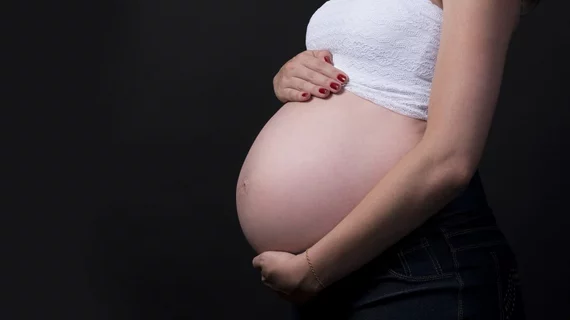Fertility treatment linked to peripartum cardiomyopathy
The risk of peripartum cardiomyopathy (PPCM) is up to five times higher in mothers who undergo common fertility treatments like intracytoplasmic sperm injection (ICSI) and in vitro fertilization (IVF), according to data presented at Heart Failure 2019 in Athens.
PPCM affects around one in 1,000 pregnant women worldwide, making it somewhat of an uncommon condition that can be fatal to both women and their children. In a release, study co-author and Hannover Medical School cardiologist Tobias Pfeffer, MD, said it can be difficult to distinguish between “normal” pregnancy discomfort and heart failure symptoms like shortness of breath and swollen limbs.
“Our study shows that the risk of PPCM is five times higher in women who have fertility treatment, so they should be aware that this discomfort may not be benign,” Pfeffer said. “PPCM is often diagnosed much too late, with direct consequences on prognosis.”
Pfeffer et al.’s study looked at 111 women in Germany who’d been diagnosed with PPCM, an illness that typically strikes in late pregnancy or post-delivery. They found one-third of those women, compared to 20% of women in the larger German population, had had trouble getting pregnant despite regular sexual intercourse over the past six months. Births using assisted reproductive tech (ART) like IVF or ICSI were five times more common in women with PPCM.
In the study, the authors found 13% of babies born to women with PPCM were conceived artificially, compared to 2.6% of babies in the general population. The proportion of children conceived via ART as a whole has been growing in the past decade, from 1.6% in 2006 to 2.6% in 2016 in Germany and from 6.1% in 2012 to 10% in 2018 in Denmark.
Denise Hilfiker-Kleiner, PhD, the study’s senior author and Hannover’s dean of research in molecular cardiology, said in the release ART is common in women with PPCM, who see elevated rates of subfertility and a 10% to 50% pregnancy rate per cycle of IVF. The high potential for IVF to fail means these women also tend to undergo several rounds of treatment, which can increase cardiac stress and hike a woman’s risk of future PPCM.
“Women who undergo artificial fertilization are normally older and delivery is more often by caesarean section, so they already have two risk factors for PPCM,” Hilfiker-Kleiner said. “Fertility treatments altogether induce multiple pregnancies, which also raises the chance of PPCM.”
The researchers said there are likely genetic components that contribute to PPCM and subfertility, but analyses are ongoing. Hilfiker-Kleiner emphasized that hormonal treatment itself doesn’t elevate a woman’s PPCM risk—it’s patients who are already predisposed to the condition that should be most wary.
“Having IVF or ICSI is not associated with a worse prognosis from PPCM,” she said. “However, as subsequent pregnancies after PPCM have a high risk for relapse, fertility treatment in PPCM patients bears a high risk for mother and fetus.
“In all women who have conceived artificially, gynecologists and fertility doctors should advise cardiac checks including echocardiography after delivery, or shortly before, to rule out PPCM.”

